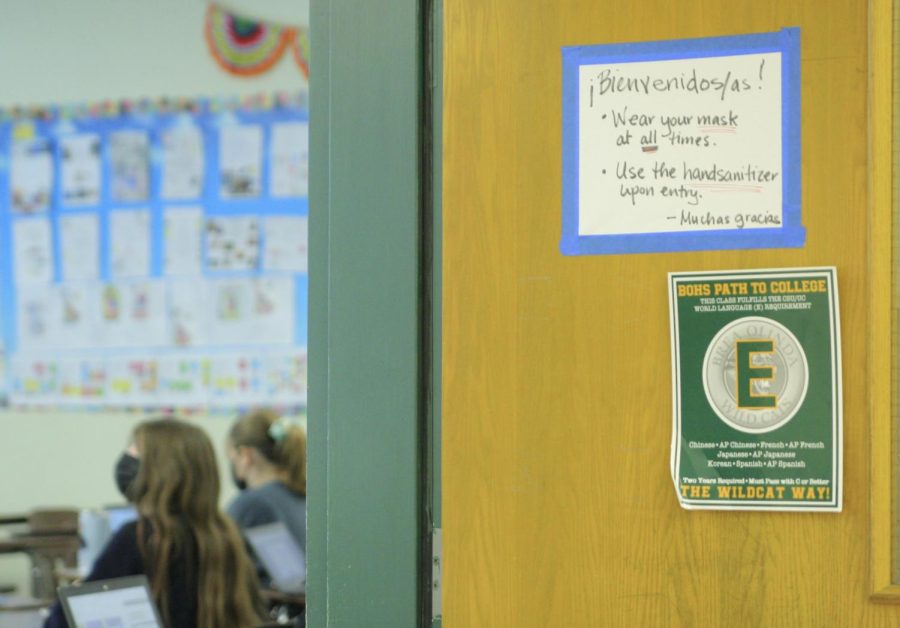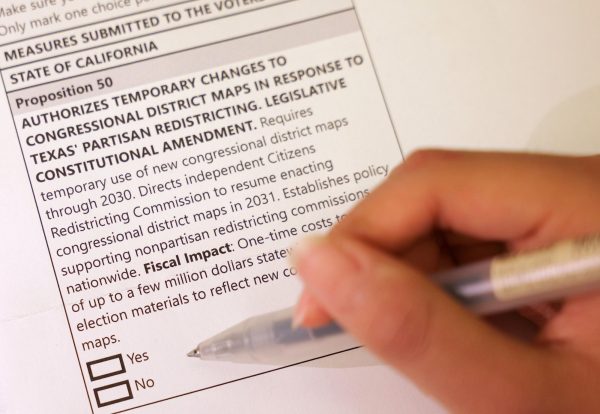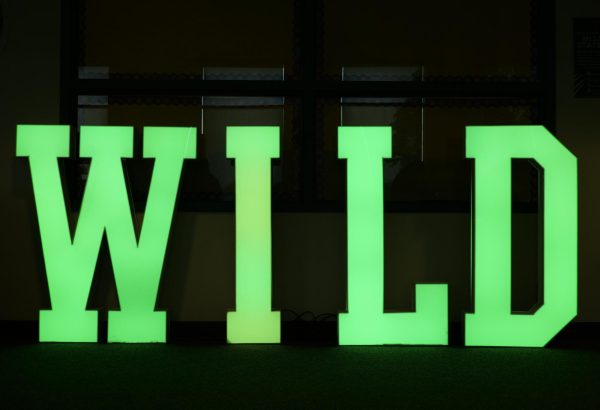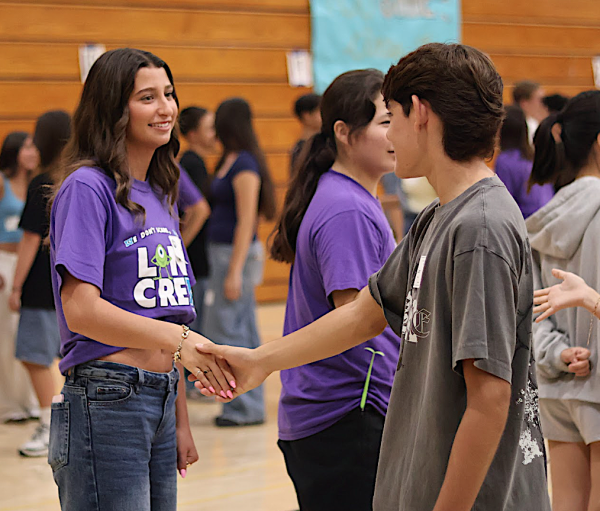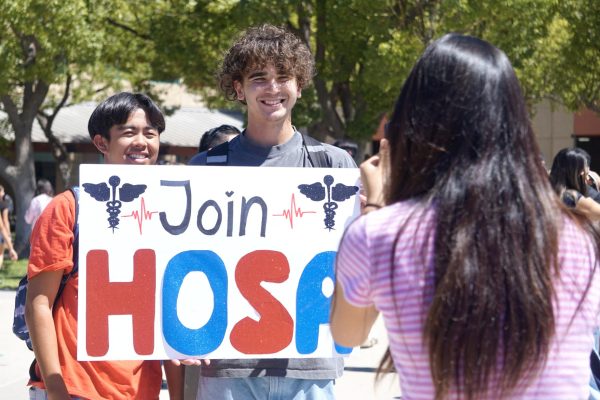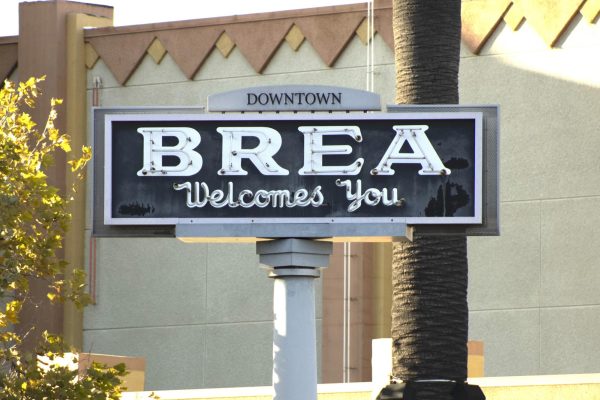Policies Adjust, Students React, to Omicron Variant
Students are greeted to teacher Omar Barcena’s, Spanish class with a sign stating — in Spanish –that students must wear their mask “at all times” and “use the hand sanitizer upon entry.” Due to the contagious Omicron variant, BOHS has emphasized the importance of taking preventative measures.
Although COVID-19 cases, overall, are on the decline, BOUSD is currently confronted with the too-familiar challenge of keeping students and staff protected from the highly contagious Omicron virus, which currently represents 99.9% of all COVID-19 cases.
Quarantine protocols within the district have changed to reflect the quick spread of the COVID-19 variants.
With updated vaccine recommendations and COVID-19 variants, the terminology used to refer to vaccination groups has changed, according to Joy Cordia, assistant principal, to “up-to-date” (those who are current with their vaccines and booster shots), and “not up-to-date” (those who are not up-to-date with their vaccines).
Additionally, with Omicron surpassing the effectiveness of the vaccines, a person’s symptoms play a greater role than vaccination status when it comes to quarantine protocols. Looking at the symptoms of the student or staff through the Symptom Decision Tree and Return to Work flow chart, Cordia and Natalie Deporto, BOHS nurse, decide whether the individual is healthy enough to return.
COVID-19 policies have also changed for BOHS’s student athletes.
“If a student is an athlete, they have an additional ‘return to play’ protocol they have to do and then they phase back in under [athletic trainer] Ken McCall’s supervision,” Cordia said.
Although it was mandatory in the past, the now optional phasing-back process has COVID-19 positive athletes go through a seven-day process by first getting cleared by a physician, then “two days of jogging for 15 minutes each day,” according to McCall. As the phases progress, the intensity of cardio increases.
When symptoms return during the protocol, athletes are referred back to the physician who evaluated and cleared them for the [Return To Play form],” McCall said.
Because of this several-day long process, athletes currently in season have faced postponement of games and practices.
On Jan. 8, CIF competition for varsity cheer was pushed to Feb. 5 due to COVID-19 concerns.
And on Jan. 28, the CIF tournament for girls’ varsity basketball was postponed to Feb. 5.
Additionally in classrooms, indoor mask policies have continued to tighten even with the declining COVID-19 cases.
Eric Barrientos, assistant principal, sent an email to BOHS staff on Jan. 12, addressing the updates on the mask protocols for BOHS, stating, “If you have students in your classrooms during lunch, please make sure masks are worn at all times by staff and students.”
Students who eat their lunch in classrooms are recommended to take their food outside and may only “re-enter the classroom once they can ensure that mask wearing guidelines are being followed,” Barrientos said.
For club meetings that happen during lunch, Barrientos has instructed club advisors to let the administrators know when they need a safe space “to ensure students are not gathering unmasked in their classrooms.”
With all the restrictions that came with coronavirus, students expressed their experiences with in-person interaction.
Because COVID-19 variants have become more contagious, students like Samantha Hernandez, junior, experienced the stresses of missing school from getting COVID-19 during winter break.
Upon returning to school, Hernandez was left with week’s-worth of lessons and assignments to catch up on. “Regardless of the work I tried to accomplish while I was out, I am quite behind and catching up will be stressful with the normal workload I get,” Hernandez said.
After some students had witnessed friends and classmates test positive for COVID-19, they learned to take even more precautions than they used to.
Seeing more students than usual absent, Danielle Jota, junior, finds herself being more cautious of her safety. ”I think having to quarantine and miss all these classes if you’re exposed [to COVID-19] can sometimes be pretty detrimental to your learning experience,” she said. “So I wouldn’t want to do that like some of my friends have had to.”
Abigail Park, junior, finds herself being more careful when she is in a crowd. “In the back of my mind, there is always the risk that I can catch COVID-19 in social settings, so that has definitely not helped me to feel 100% comfortable in my learning environment,” she said.
Students like Shulin Raja, junior, try to travel less to lessen the possible COVID-19 exposures. “The increase in COVID-19 cases has caused me to be a bit more careful about what I do and where I go. I try to limit going places outside of school.”
With the surge of COVID-19 cases, ASB has had to “reschedule or push many things back including the rallies and Open House,” Gracie Johnson, ASB president, said.
For COVID-19 safety reasons, the Open house was rescheduled from Jan. 20 to Feb. 17.
To reduce the number of people gathering at the Open House, ASB created a system where they have “station rotations”: families will get a ticket to follow a rotation between the main gym, PAC, and be followed-up with a visit to the campus/classroom.
Such limitations that came with COVID-19 has impacted the pre-planned schedules of rallies, events, and sports, according to Johnson.
“Despite all the craziness, we’ve learned to adapt to changes and work our best with what we have,” Johnson said. “I know staff/admin still want us to have as many events as possible but with things constantly changing, the possibility for events are up in the air,” she added.
Your donation supports the student journalists at Brea Olinda High School! The contribution will help us purchase equipment, upgrade technology, and cover our annual website hosting costs.

Jasmine Youn is a Wildcat Feature Editor, born and raised from the Bay Area in California. She likes to spend most of her time crocheting, listening to...

Karis Choi, junior, joined the Wildcat newspaper at the beginning of her sophomore year starting off as a photographer and staff writer and transitioning...
Diana Lee, junior, joined the Wildcat Staff in 2020-2021. She enjoys taking pictures of trips and fun times to look back on for memories. She spends her...


